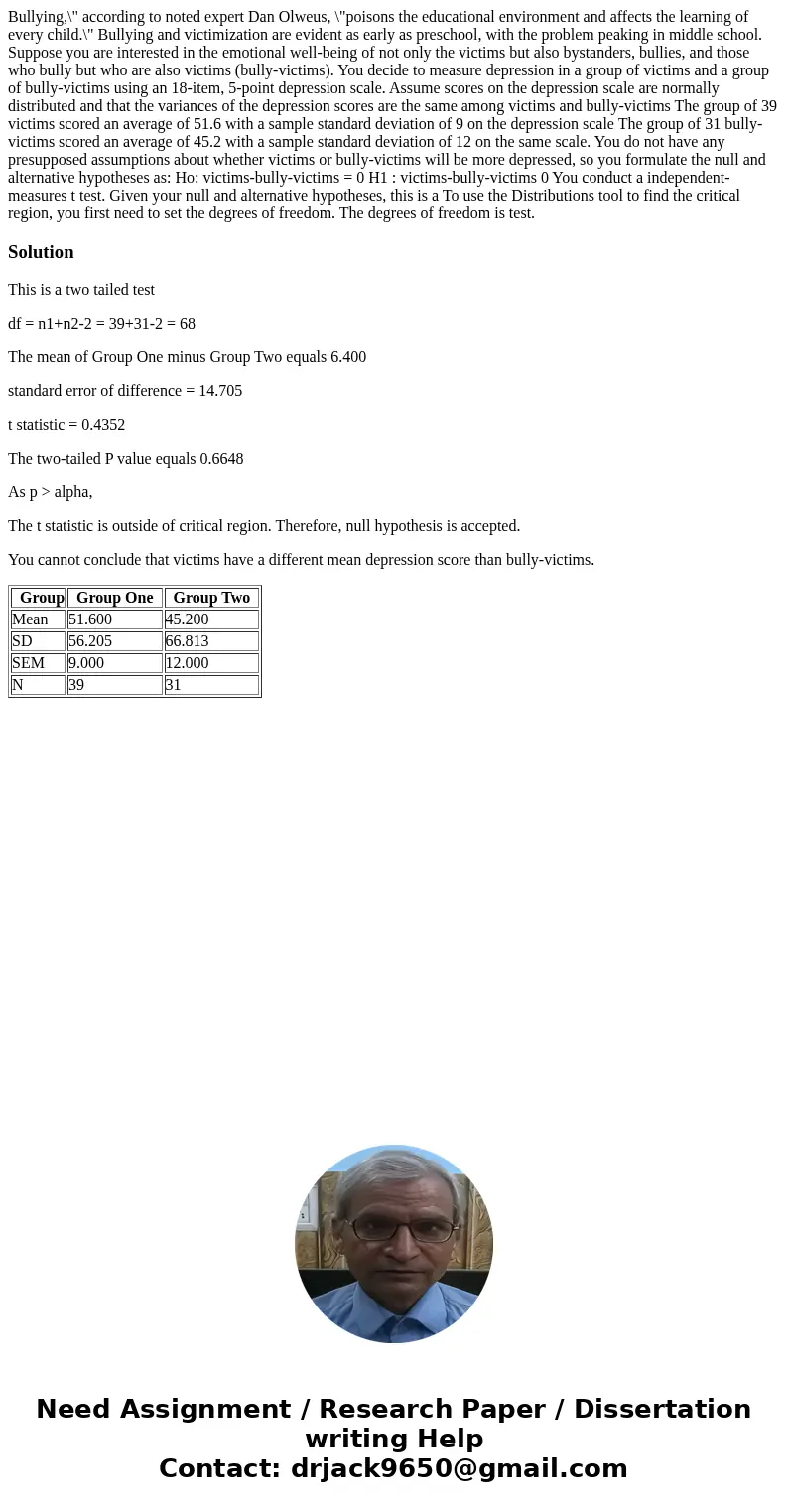Bullying according to noted expert Dan Olweus poisons the ed
Bullying,\" according to noted expert Dan Olweus, \"poisons the educational environment and affects the learning of every child.\" Bullying and victimization are evident as early as preschool, with the problem peaking in middle school. Suppose you are interested in the emotional well-being of not only the victims but also bystanders, bullies, and those who bully but who are also victims (bully-victims). You decide to measure depression in a group of victims and a group of bully-victims using an 18-item, 5-point depression scale. Assume scores on the depression scale are normally distributed and that the variances of the depression scores are the same among victims and bully-victims The group of 39 victims scored an average of 51.6 with a sample standard deviation of 9 on the depression scale The group of 31 bully-victims scored an average of 45.2 with a sample standard deviation of 12 on the same scale. You do not have any presupposed assumptions about whether victims or bully-victims will be more depressed, so you formulate the null and alternative hypotheses as: Ho: victims-bully-victims = 0 H1 : victims-bully-victims 0 You conduct a independent-measures t test. Given your null and alternative hypotheses, this is a To use the Distributions tool to find the critical region, you first need to set the degrees of freedom. The degrees of freedom is test.

Solution
This is a two tailed test
df = n1+n2-2 = 39+31-2 = 68
The mean of Group One minus Group Two equals 6.400
standard error of difference = 14.705
t statistic = 0.4352
The two-tailed P value equals 0.6648
As p > alpha,
The t statistic is outside of critical region. Therefore, null hypothesis is accepted.
You cannot conclude that victims have a different mean depression score than bully-victims.
| Group | Group One | Group Two |
|---|---|---|
| Mean | 51.600 | 45.200 |
| SD | 56.205 | 66.813 |
| SEM | 9.000 | 12.000 |
| N | 39 | 31 |

 Homework Sourse
Homework Sourse